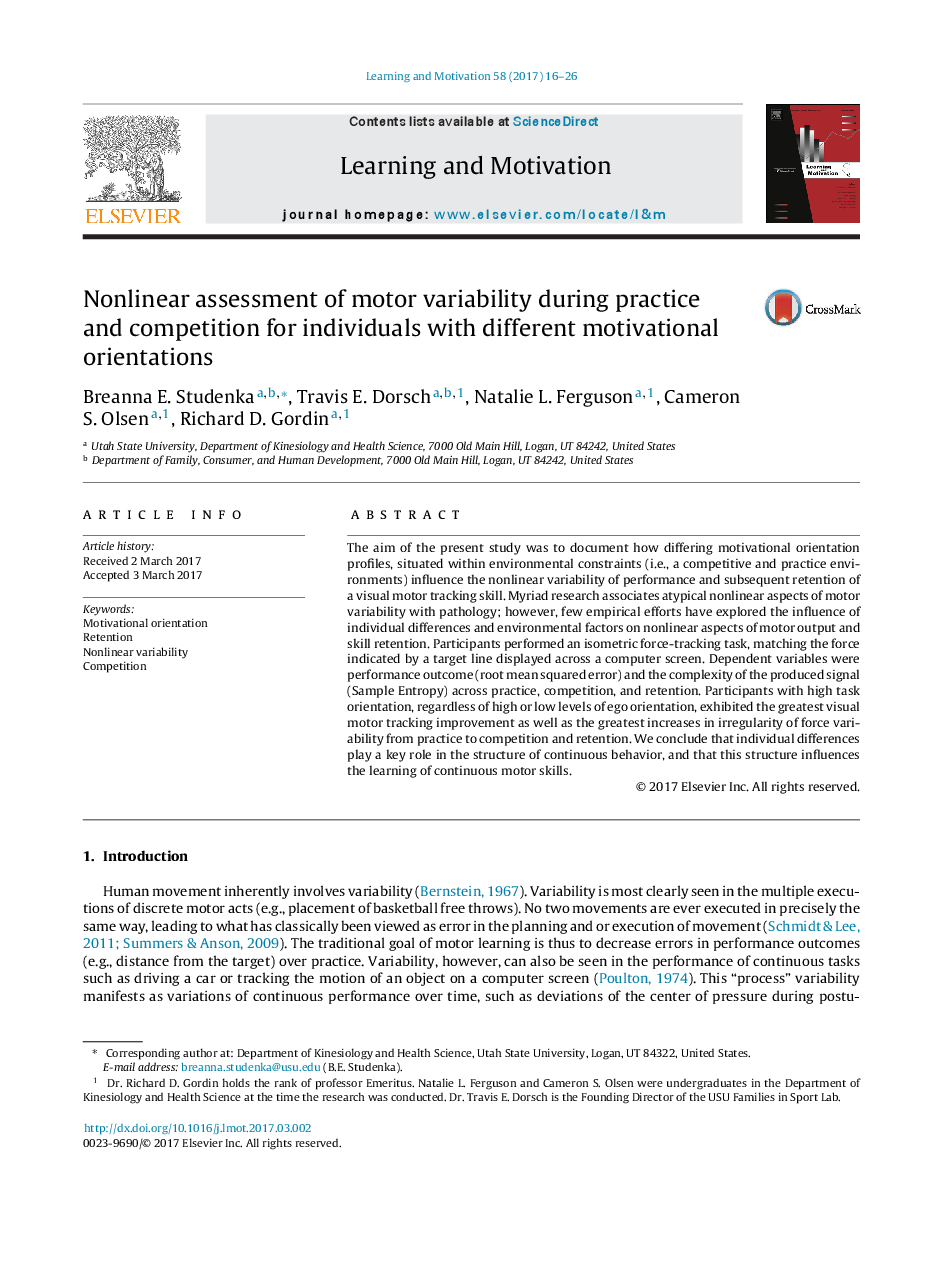ترجمه فارسی عنوان مقاله
ارزیابی غیرخطی متغیرهای حرکتی در طی تمرین و رقابت برای افراد با جهت گیری های مختلف انگیزشی
عنوان انگلیسی
Nonlinear assessment of motor variability during practice and competition for individuals with different motivational orientations
| کد مقاله | سال انتشار | تعداد صفحات مقاله انگلیسی |
|---|---|---|
| 122601 | 2017 | 11 صفحه PDF |
منبع

Publisher : Elsevier - Science Direct (الزویر - ساینس دایرکت)
Journal : Learning and Motivation, Volume 58, May 2017, Pages 16-26
ترجمه کلمات کلیدی
جهت گیری انگیزشی، نگهداری، تنوع غیر خطی، رقابت،
کلمات کلیدی انگلیسی
Motivational orientation; Retention; Nonlinear variability; Competition;
ترجمه چکیده
هدف از مطالعه حاضر، نشان دادن این است که چگونه پروفایل های گرایش انگیزشی در محدوده های محیطی (یعنی محیط رقابتی و تمرین) متفاوت از تغییرات غیرخطی عملکرد و احتباس بعد از مهارت ردیابی حرکتی بصری تاثیر می گذارند. تحقیقات میراثی جنبه های غیرخطی آتیپیک متغیرهای موتور را با پاتولوژی مرتبط می کند. با این حال، تعداد کمی از تلاش های تجربی به بررسی تأثیر اختلافات فردی و عوامل محیطی در جنبه های غیر خطی خروجی موتور و حفظ مهارت پرداخته شده است. شرکت کنندگان یک وظیفه ردیابی ایزومتریک انجام دادند، مطابق با نیروی مشخص شده توسط یک خط هدف نشان داده شده در یک صفحه رایانه. متغیر وابسته نتیجه عملکرد (خطای متوسط ریشه مربع) و پیچیدگی سیگنال تولید (آنتروپی نمونه) در عمل، رقابت و حفظ است. شرکت کنندگان با جهت گیری بالای کاری، صرف نظر از سطوح بالای یا پایین جهت گیری خود، بزرگترین بهبود ردیابی موتور بصری و همچنین بزرگترین افزایش بی نظمی تغییرات نیرو را از تمرین به رقابت و نگهداری نشان می دهد. ما نتیجه می گیریم که تفاوت های فردی نقش اصلی در ساختار رفتار مداوم ایفا می کنند و این ساختار بر یادگیری مهارت های مداوم حرکت تأثیر می گذارد.

